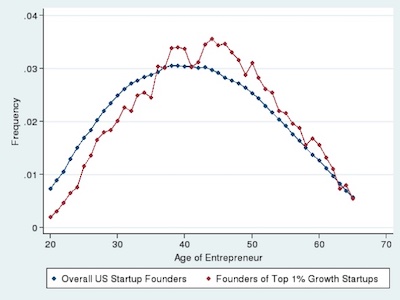Being an Entrepreneur 10 Reflections on What It Takes
Being an entrepreneur is a life that has some special needs. It is not for everybody, . There are all kinds of advice available, including on Venture Founders. Even though there are many courses on entrepreneurship (I taught one on an MBA program), but I don’t know any that will prepare you for the startup reality.
If you want to avoid disappointment and are determined on being an entrepreneur, check that most of these behaviors sound like a good fit and that you:
- are prepared to become one, since the best learning will be by doing;
- naturally accept impermanence, and thereby anticipate possibilities;
- can both listen attentively and act impulsively;
- are able to expand and refine your vision via interaction with people and events;
- naturally apply foresight, insight and hindsight—all at the same time;
- have both passion and caution;
- suffer and can endure suffering;
- notice behavior, thoughts and feelings;
- have inner direction and self-reliance;
- are prepared for it to be a lifetime occupation.
And, number 11, you will tend to be someone who above all competes with self, even more than with others. Today ,on my daily walk round our suburban Texas lake, I met a young teenager who had just caught a 17.5 pound catfish. He was pretty pleased and added that now he’d go for one of at least 18 pounds. I soon discovered that he was learning bull riding on a friend’s ranch. My forecast is that he’s got what it takes to being a venture founder.
Being and entrepreneur can be a lonely occupation and involve much stress, but generally it’s not a career choice. Being an entrepreneur is something that happens as a result, often way beyond inventing a better mousetrap. Being an entrepreneur will involve a passion to do something that will enhance life and make for a community that better meets the needs of its members.
Most occupations require a specific set of qualities or qualifications. This does not apply to being an entrepreneur. There are many studies about what makes for successful entrepreneurship and to almost every one, there are exceptions. From my own experience, I have distilled some behaviors that I believe most successful founders exhibit, but you will be able to point to ones that I have omitted!
On a lighter note I have created an alphabet of entrepreneur types, each of which exhibits a grain of truth. The first three in the ABC will give a clue: Artisan, Bootstrapper, Copycat. The other letters are all in a similar vein and seek to demonstrate just how varied entrepreneurs really are.
To help provide perspective, I have also written about the non-entrepreneurial mind. It may be more instructive to think about what business founders are not. In other words, knowing what behaviors are likely to inhibit success, may help the prospective founder avoid doing things that are unlikely to be helpful in making their venture take off.
20 Things You Should Know Before Becoming an Entrepreneur offers some very helpful advice from an entrepreneur on the website of Seedcamp, a seed investment firm—well worth taking a look.

Lastly you will know when you are ready to leap into startup, becoming an entrepreneur. You will have no choice. I did not. I had the benefit of a practice run at being an entrepreneur, when I started a new division of the French Multinational that I had worked for over several years.
Like me, chances are that you won’t be inexperienced in business. In the graph on the left, you will see that research at the National Bureau of Economic Research (2018) showed the average age of business founders to be about 45 years old. I started my first business at the age of 43.
You will need to have been around the block a few times—and to have failed in a few endeavors in business situations. So that when you startup on your own, you will avoid too many mistakes and surprises.






